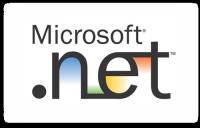Competition made Microsoft open source embedded .NET


Competition.
Makers of embedded devices have been moving strongly into open source, especially Linux, and Microsoft was at great risk of being left behind. The announcement was made at the company's Professional Developer Conference in Los Angeles.
The news comes against the backdrop of falling market share for Windows Mobile, and increasing market share for Microsoft open source, as revealed in the latest Black Duck figures. They're not being nice here, they're being practical.
Here is how Microsoft community development manager Peter Galli put it on his blog:
The result of this is that the .NET Micro Framework has become a seamless development experience, bringing a single programming model and tool chain for the breadth of developer solutions, all the way from small intelligent devices, to servers and the cloud. There are also no more time-limited versions.
Note that Microsoft is not open sourcing the TCP/IP stack that .NET Micro links to. That's someone else's. But the news will let developers create Internet-linked device networks using .NET. It gives Microsoft an in to a technology open source, and Linux, were threatening to run away with.
The handwriting was probably on the wall here years ago, when Linux bought Wind River, and when innovative start-up Cavium bought MontaVista resistance became futile.
It must be noted that software is just a small part of any embedded, Internet-linked solution. It doesn't mean you're getting something for nothing, because the chips the software is expressed in are sold as part of larger devices.
It's all part of a vision I covered early this decade of wireless networks acting as application platforms, using Internet standards to create systems for home automation, medicine and entertainment that are always on and live in the air.
Now Microsoft has a viable play in this game, and this is very good news for .NET developers.